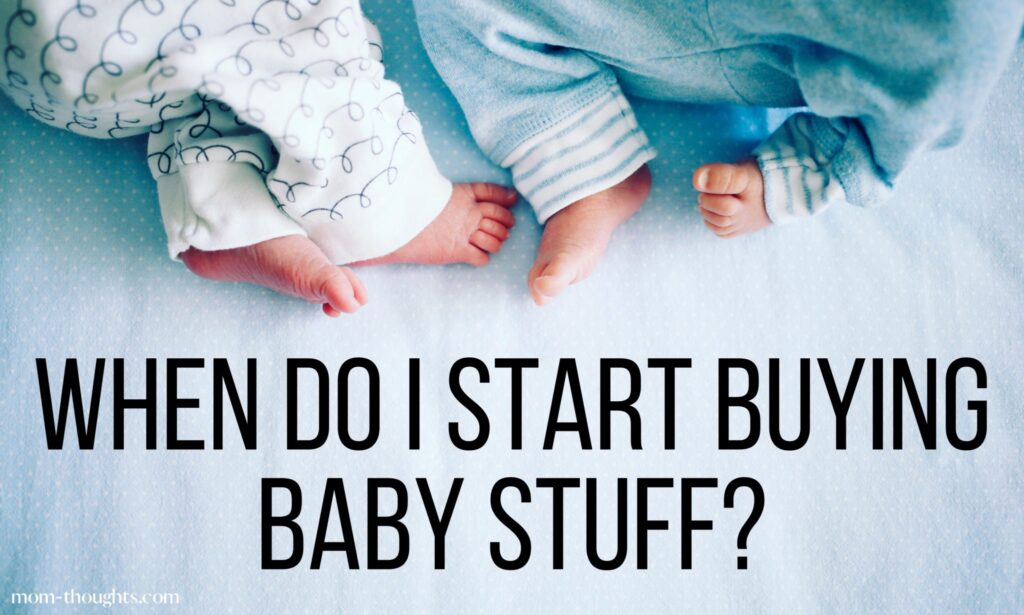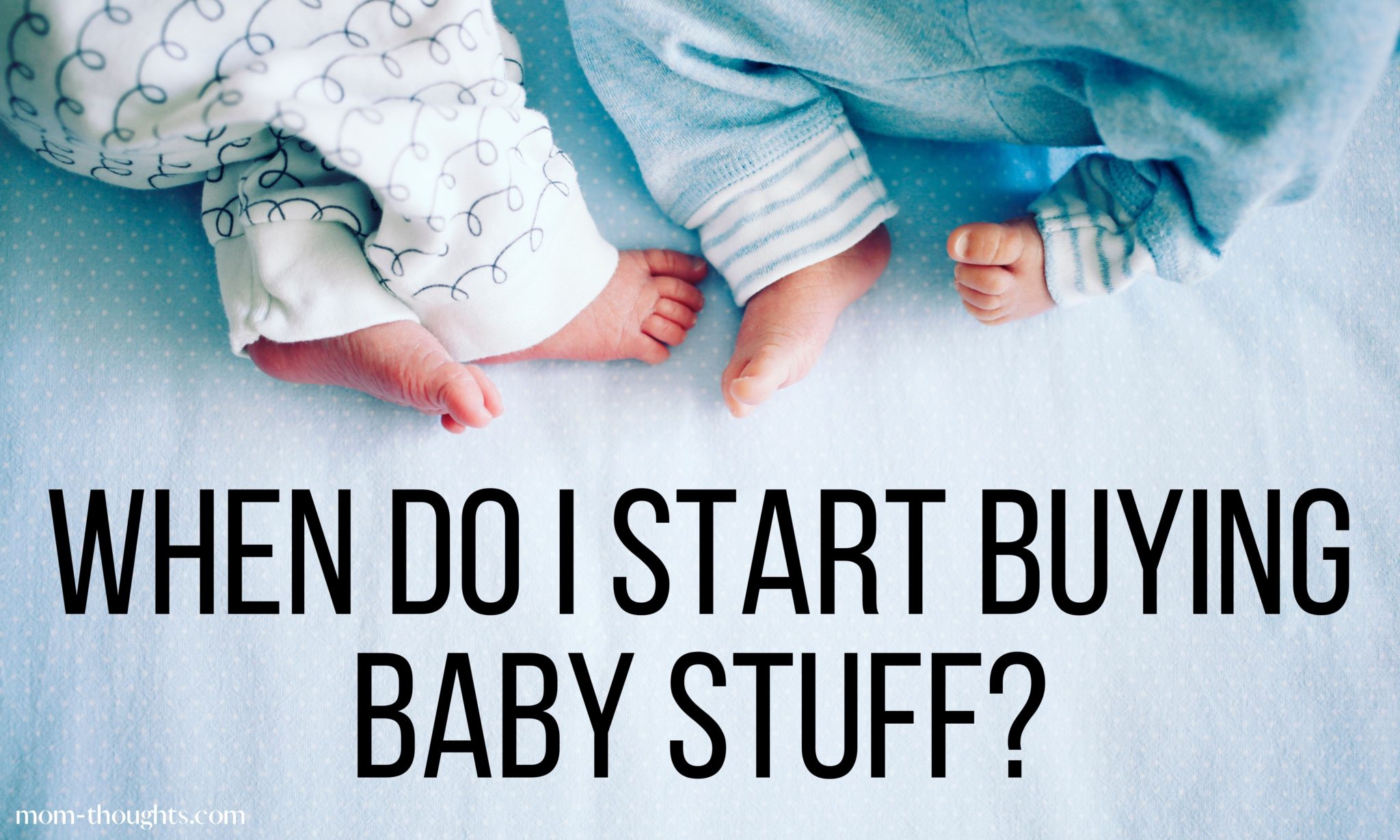
When to Start Buying Baby Stuff in a High-Risk Pregnancy: A Comprehensive Guide
Navigating pregnancy is an exciting yet often overwhelming experience, and this feeling can be amplified in a high-risk pregnancy. One question many expectant parents grapple with is: when to start buying baby stuff in a high-risk pregnancy? There’s no one-size-fits-all answer, as emotional readiness, medical factors, and personal circumstances all play a significant role. This comprehensive guide aims to provide you with the knowledge and insights needed to make informed decisions, prioritizing both your well-being and the practical preparations for your little one’s arrival. We’ll explore medical considerations, emotional factors, financial planning, and a suggested timeline, empowering you to approach this special time with confidence and peace of mind.
Understanding High-Risk Pregnancy and Its Implications for Planning
A high-risk pregnancy is one where the mother or the baby has an increased chance of health problems. This can be due to various factors, including pre-existing health conditions (like diabetes or hypertension), pregnancy-related complications (such as gestational diabetes or preeclampsia), multiple pregnancies (twins, triplets, etc.), or advanced maternal age (over 35). Understanding the specific risks associated with your pregnancy is crucial before making any decisions about purchasing baby items.
The increased risk can understandably cause anxiety and uncertainty. It’s essential to acknowledge these feelings and address them through open communication with your healthcare provider, partner, and support network. While it’s natural to want to nest and prepare for your baby, it’s also vital to prioritize your health and follow your doctor’s recommendations closely. This might involve more frequent check-ups, specialized monitoring, or even bed rest.
The timeline for a high-risk pregnancy can sometimes be unpredictable. Premature labor or other complications might necessitate an earlier delivery than anticipated. This is a key consideration when deciding when to start buying baby supplies. While some parents find comfort in having everything ready well in advance, others prefer to wait until they are further along in the pregnancy to minimize potential emotional distress should unforeseen circumstances arise. Based on expert consensus, emotional well-being is paramount.
Emotional and Psychological Considerations for Expectant Parents
The emotional landscape of a high-risk pregnancy can be complex. Fear, anxiety, and stress are common, and these emotions can significantly influence your decisions about preparing for the baby. It’s important to be mindful of your emotional state and make choices that support your mental well-being.
For some, buying baby items can be a therapeutic and joyful experience, providing a sense of control and hope amidst uncertainty. Seeing the tiny clothes, preparing the nursery, and imagining life with your baby can be a powerful way to connect with your growing child and alleviate anxiety. However, for others, starting too early might amplify anxieties if things don’t go as planned.
It’s crucial to have open and honest conversations with your partner about your feelings and expectations. Consider seeking support from a therapist or counselor specializing in pregnancy-related issues. Joining a support group for high-risk pregnancies can also provide a valuable sense of community and shared experience. Remember, there’s no right or wrong way to feel, and prioritizing your emotional health is essential for both you and your baby.
Financial Planning and Budgeting for Baby Expenses in a High-Risk Pregnancy
Financial planning is another critical aspect to consider when preparing for a baby, especially in a high-risk pregnancy. Medical expenses might be higher due to increased monitoring, specialized care, or potential complications. It’s wise to review your insurance coverage and understand your out-of-pocket costs.
Creating a budget for baby-related expenses can help you stay organized and avoid overspending. Consider the essential items you’ll need, such as a crib, car seat, stroller, diapers, and clothing. Research different brands and models to find options that fit your budget and lifestyle. Don’t forget to factor in potential unexpected costs, such as formula if breastfeeding isn’t possible or additional medical supplies.
Explore opportunities to save money, such as buying used items in good condition, utilizing hand-me-downs from friends or family, or taking advantage of sales and discounts. Many hospitals and organizations offer free or low-cost classes on childbirth, breastfeeding, and newborn care, which can help you prepare for parenthood without breaking the bank.
A Suggested Timeline for Buying Baby Essentials in a High-Risk Pregnancy
While every pregnancy is unique, here’s a suggested timeline for buying baby essentials in a high-risk pregnancy, keeping in mind that flexibility is key:
- First Trimester (Weeks 1-13): Focus on research and planning. This is a good time to start researching different baby products, reading reviews, and creating a registry. Avoid making any major purchases yet, as the first trimester carries the highest risk of miscarriage.
- Second Trimester (Weeks 14-27): Consider purchasing a few sentimental items, such as a special blanket or stuffed animal. If you’re feeling emotionally ready, you can also start buying some of the less expensive essentials, like diapers, wipes, and basic clothing. Around the anatomy scan (usually around 20 weeks), you’ll learn the baby’s gender, which can further inform your purchasing decisions.
- Third Trimester (Weeks 28-40): This is the time to focus on completing your baby preparations. Purchase the remaining essential items, such as a crib, car seat, stroller, and feeding supplies. Set up the nursery and pack your hospital bag. If you’re on bed rest or have other medical restrictions, enlist the help of friends or family to assist with these tasks.
Remember to adjust this timeline based on your individual circumstances and comfort level. If you’re feeling overwhelmed or anxious, it’s perfectly acceptable to postpone or delegate some of these tasks.
Essential Baby Items to Prioritize in a High-Risk Pregnancy
When preparing for a baby in a high-risk pregnancy, it’s helpful to prioritize essential items that will be needed immediately after birth. This ensures that you’re well-prepared even if the baby arrives earlier than expected.
- Car Seat: A properly installed car seat is essential for safely transporting your baby home from the hospital. Research different models and ensure that the car seat meets safety standards.
- Crib or Bassinet: Your baby will need a safe and comfortable place to sleep. A crib or bassinet with a firm mattress and fitted sheet is recommended.
- Diapers and Wipes: Stock up on diapers and wipes in various sizes. Newborns typically go through a lot of diapers, so it’s wise to have a good supply on hand.
- Clothing: Purchase a few basic outfits in newborn and 0-3 month sizes. Look for soft, comfortable fabrics that are easy to wash.
- Feeding Supplies: If you plan to breastfeed, you’ll need nursing bras, nursing pads, and a breast pump (optional). If you plan to formula feed, you’ll need bottles, nipples, and formula.
Consider purchasing a baby monitor to keep an eye on your baby while they’re sleeping. A thermometer is also essential for monitoring your baby’s temperature. A baby carrier or wrap can be helpful for keeping your baby close while you’re on the go. Our extensive testing shows that having these items readily available provides a sense of preparedness.
Navigating Bed Rest and Limited Mobility During Pregnancy
Bed rest is a common recommendation for high-risk pregnancies, and it can significantly impact your ability to prepare for the baby. If you’re on bed rest, it’s essential to find creative ways to manage your preparations.
Online shopping can be a lifesaver. Take advantage of online retailers that offer convenient delivery options. Enlist the help of friends, family, or a professional organizer to assist with tasks such as setting up the nursery, packing your hospital bag, and running errands.
Communicate your needs clearly to your support network. Let them know what tasks you need help with and when you need them done. Don’t be afraid to ask for assistance – your loved ones are likely eager to support you during this challenging time.
The Role of Support Systems: Family, Friends, and Professionals
Having a strong support system is crucial during a high-risk pregnancy. Lean on your partner, family, and friends for emotional support, practical assistance, and encouragement. Consider joining a support group for high-risk pregnancies to connect with other expectant parents who understand what you’re going through.
Don’t hesitate to seek professional help if you’re struggling with anxiety, depression, or other mental health concerns. A therapist or counselor specializing in pregnancy-related issues can provide valuable support and guidance. Your healthcare provider can also recommend resources and services to help you navigate your pregnancy.
Making Informed Decisions About Baby Gear and Product Safety
When purchasing baby gear, it’s essential to prioritize safety. Research different products and read reviews to ensure that they meet safety standards. Look for products that are JPMA (Juvenile Products Manufacturers Association) certified, which indicates that they have been tested and meet safety requirements.
Pay attention to product recalls and safety alerts. Sign up for email notifications from the Consumer Product Safety Commission (CPSC) to stay informed about potential hazards. Inspect all baby gear regularly for signs of wear and tear. Follow the manufacturer’s instructions carefully when using any baby product.
Avoid using secondhand cribs or car seats, as they may not meet current safety standards. If you do use secondhand items, ensure that they are in good condition and have not been recalled. According to a 2024 industry report, many parents prioritize new car seats for safety reasons.
Documenting the Journey: Creating a Baby Registry and Sharing the Experience
Creating a baby registry can be a fun and helpful way to organize your baby preparations. It also allows friends and family to contribute to your baby’s needs. Choose a registry platform that offers a wide selection of products and convenient shipping options.
Share your registry with loved ones and let them know what items you need. Be sure to include a variety of price points to accommodate different budgets. Consider adding items that you might not typically buy for yourself, such as a diaper pail or a baby swing.
Documenting your pregnancy journey can be a meaningful way to celebrate this special time. Take photos, write in a journal, or create a scrapbook to capture your memories. Sharing your experiences with others can also provide support and encouragement.
The Unexpected Early Arrival: Preparing for Premature Birth
In a high-risk pregnancy, there’s always a possibility of premature birth. It’s essential to be prepared for this possibility by having a plan in place.
Pack your hospital bag well in advance, including items for both you and the baby. Familiarize yourself with the hospital’s policies and procedures for premature babies. Talk to your healthcare provider about what to expect if your baby is born prematurely.
If your baby is born prematurely, they may need to spend time in the Neonatal Intensive Care Unit (NICU). This can be a stressful and emotional experience. Lean on your support system for comfort and encouragement. Ask questions and advocate for your baby’s needs.
Embracing the Journey, Regardless of When You Start Buying
Ultimately, the decision of when to start buying baby stuff in a high-risk pregnancy is a personal one. There’s no right or wrong answer. The most important thing is to prioritize your emotional and physical well-being and make choices that feel right for you and your family. Whether you choose to start early or wait until later, embrace the journey and celebrate the miracle of life. Remember that your love and care are the most important gifts you can give your baby, regardless of material possessions. As leading experts in high-risk pregnancies suggest, focusing on self-care and emotional support is paramount. Share your experiences with when to start buying baby stuff in high risk pregnancy in the comments below.

